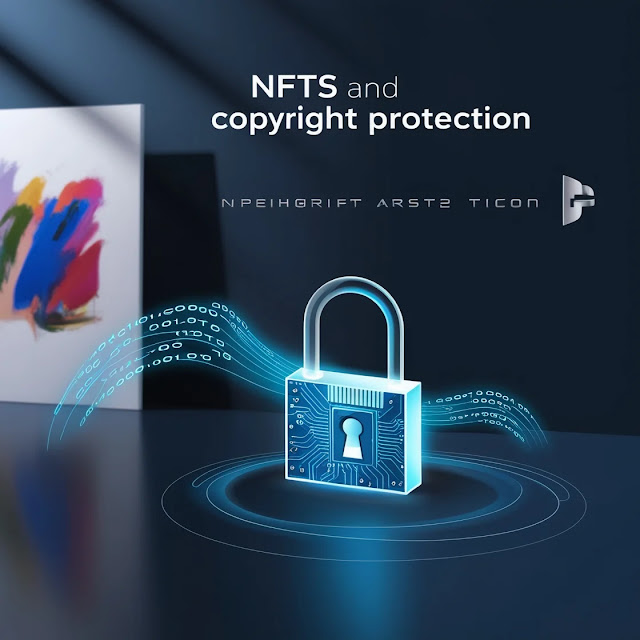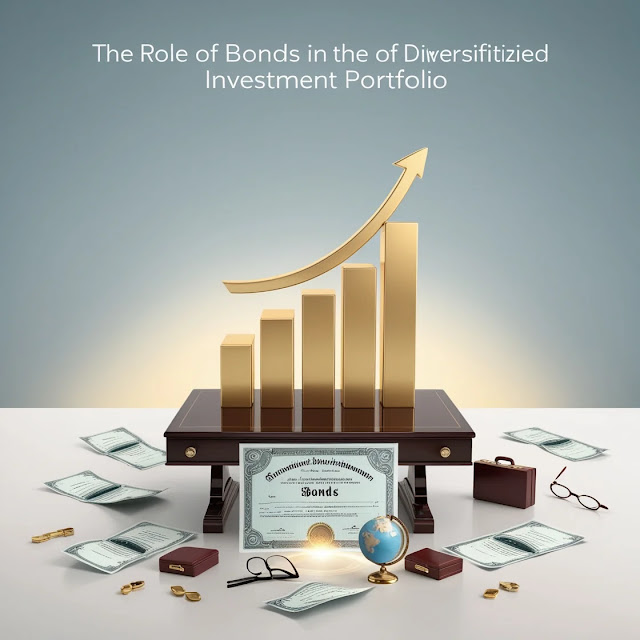NFTs and Copyright Protection: Securing Digital Assets
In the digital era, the intersection of technology, art, and intellectual property has given rise to NFTs (Non-Fungible Tokens). As more creators and collectors turn to NFTs to establish ownership over digital assets, understanding the role of copyright protection becomes essential. This article delves into how NFTs interact with copyright law and provides insights into safeguarding digital creations in this rapidly evolving space.
 |
| NFTs and Copyright Protection: Securing Digital Assets |
What are NFTs and How Do They Work?
NFTs, or Non-Fungible Tokens, are unique digital assets that exist on blockchain technology. Unlike cryptocurrencies like Bitcoin or Ethereum, which are interchangeable, NFTs are one-of-a-kind and cannot be replicated. Each NFT has a distinct value based on its rarity, content, and the demand within its market. Artists, musicians, and creators across industries are now utilizing NFTs to sell and distribute their work in the digital space.
Through blockchain, an NFT provides proof of ownership and authenticity for a digital asset, whether that asset is a piece of artwork, music, video, or another form of creative expression. This system offers creators a new avenue for monetizing their work while ensuring that digital assets are traceable and unique.
The Role of Copyright in the Digital Age
Copyright law is essential for protecting intellectual property (IP), allowing creators to retain control over how their work is used and distributed. In the digital age, copyright extends beyond traditional media such as books or films to encompass digital creations like images, videos, music, and software. Copyright protection automatically applies the moment a work is created, ensuring the owner has exclusive rights over reproduction, distribution, and public display.
However, as more content becomes digitized and easily shared across platforms, copyright infringement is a growing concern. Unauthorized distribution, copying, and monetization of works without proper credit or payment to the creator remain common challenges. This is where NFTs come into play by potentially offering a layer of protection, transparency, and traceability for digital works.
How NFTs Relate to Copyright Law
Although NFTs offer proof of ownership for a digital asset, they do not automatically grant copyright over the work itself. When purchasing an NFT, the buyer acquires the right to claim ownership of the unique token, but the creator retains the copyright unless explicitly transferred. This distinction is crucial for both creators and collectors to understand, as it determines who can reproduce, distribute, or modify the digital asset.
For example, if a musician sells an NFT of a song, the buyer may own the NFT but does not automatically gain the rights to distribute or license the music unless those rights are part of the NFT sale agreement. Likewise, visual artists selling NFT artwork can retain their rights to reproduce the work or sell prints separately.
Protecting Your Digital Assets with NFTs
For creators, NFTs offer a new way to secure and monetize digital assets while maintaining control over their IP. By minting their work as NFTs, artists can establish a verifiable record of ownership and originality, helping prevent unauthorized reproduction or sale. Moreover, some NFT platforms allow creators to earn royalties from secondary sales, ensuring they receive a percentage of profits if the NFT is resold.
Collectors also benefit from this system, as they are assured of the asset's authenticity and scarcity, making NFTs appealing as digital collectibles. Blockchain’s transparency ensures that the ownership history and sale details are publicly available, minimizing the risk of fraud.
Potential Copyright Issues with NFTs
Despite the advantages NFTs bring to copyright protection, there are still potential pitfalls. One key issue is copyright infringement, as digital works can still be copied and distributed without the creator’s consent, even if an NFT exists. Furthermore, anyone can theoretically mint an NFT for a work they do not own the rights to, leading to disputes over authenticity and ownership.
Additionally, the decentralized nature of blockchain complicates enforcement. While it is easy to trace ownership on the blockchain, taking legal action against copyright violations can be challenging, particularly across different jurisdictions. The legal framework surrounding NFTs and copyright protection is still developing, and creators may find it difficult to fully safeguard their work in some cases.
Best Practices for Copyright Protection of NFTs
To maximize copyright protection when using NFTs, creators and collectors should follow a few best practices:
Understand the Rights Being Transferred: When selling or purchasing an NFT, ensure that both parties clearly understand the rights associated with the asset. Specify whether copyright, reproduction rights, or distribution rights are included in the sale.
Consider Licensing Terms: Creators should think about licensing terms that accompany their NFTs. Establish clear guidelines for how the work can be used by the NFT owner, if at all.
Use Trusted Platforms: Utilize established NFT marketplaces that have strong terms and conditions to protect both buyers and sellers from fraudulent activities.
Register Your Copyright: Even though copyright protection applies automatically, registering your copyright can provide additional legal protection and simplify enforcement in case of infringement.
Questions and Answers about NFTs and Copyright Protection
Do NFTs Automatically Provide Copyright Protection?
No, NFTs do not automatically provide copyright protection. They offer proof of ownership of the token but do not grant exclusive rights to reproduce or distribute the associated digital work. Copyright remains with the original creator unless explicitly transferred.
Can Someone Mint an NFT of My Work Without My Permission?
Unfortunately, yes. If someone copies your digital work and mints an NFT, it can lead to legal disputes over ownership. Platforms are starting to introduce stricter measures to prevent this, but it is still a risk in the current NFT landscape.
How Can I Ensure My NFTs Aren't Infringed Upon?
Registering your copyright, establishing clear licensing terms, and using reputable platforms can help minimize the risk of copyright infringement. Additionally, creators should monitor the blockchain for unauthorized use of their work and take legal action if necessary.
What Happens If an NFT Buyer Violates Copyright Terms?
If an NFT buyer violates the terms set forth by the creator, legal action can be taken just as it would be for any other copyright violation. However, enforcement may vary depending on jurisdiction and the specific platform used for the NFT sale.
Conclusion
The rise of NFTs has opened new opportunities for creators and collectors to engage in the digital art and media landscape. However, while NFTs provide a novel way to establish ownership and authenticity of digital assets, they do not inherently grant copyright protection. Creators must remain vigilant about securing their intellectual property and taking appropriate legal measures to safeguard their work. As the technology and legal frameworks around NFTs evolve, understanding how copyright law applies to digital assets will be crucial for the long-term success of both creators and collectors in the NFT space.





